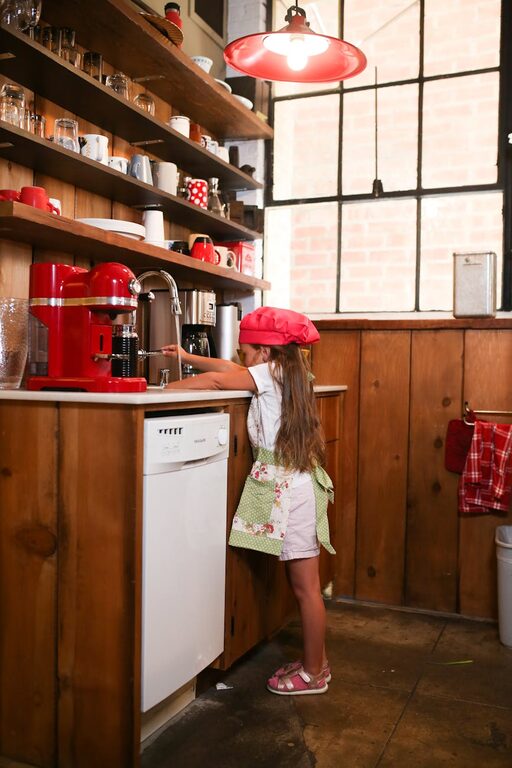Cleaning up after dinner can often feel like a daunting task, especially after a long day. Fortunately, with a few simple strategies and mindset shifts, you can make dinner cleanup quicker, easier, and even a bit more enjoyable. In this post, we’ll explore various ideas to help you streamline the cleanup process so that you can spend less time in the kitchen and more time relaxing.
Plan Ahead to Simplify Cleanup
Use Fewer Dishes and Utensils
One of the biggest causes of a long cleanup is having too many dishes and utensils to wash. When planning your meals, consider recipes that use fewer pots and pans. For example, sheet pan dinners, one-pot meals, or casseroles are great options that contain most of the cooking within a single dish.
Prep Ingredients in Advance
Preparing ingredients ahead of time can help reduce mess during cooking. Chop vegetables, measure spices, and organize other ingredients before you start cooking. This way, you won’t have random piles of scraps or excess containers scattered around your workspace.
Set Up a Cleanup Station
Before cooking, arrange your sink and counter area with all necessary cleaning supplies such as a sponge, dish soap, and drying rack. Having everything ready means you can quickly clean utensils or wipe surfaces as you cook, preventing buildup of mess.
Adopt Efficient Cooking and Serving Methods
Cook in Batches or Use Multi-Functional Kitchen Tools
Using appliances like slow cookers, Instant Pots, or air fryers lets you prepare meals in one pot with minimal cleanup. Batch cooking also reduces the frequency of meal preparation, so you’re only cleaning up once instead of multiple times a day.
Serve Family-Style
Instead of plating individual servings, consider serving the meal family-style in large dishes. This cuts down on the number of plates and utensils used and encourages sharing, which can foster connection during mealtime.
Use Disposable or Reusable Containers Wisely
For busy nights, using compostable paper plates, napkins, or cutlery can cut cleanup time significantly. Alternatively, keep a stash of reusable silicone or bamboo plates and utensils to reduce waste while easing cleanup.
Build Cleanup Into Your Routine
Clean as You Go
One of the most effective strategies is to clean during cooking. Rinse or wash pots and utensils once you’re done using them instead of waiting until the end. Wipe down countertops and stovetops regularly to avoid sticky build-up.
Delegate Tasks
If you live with family members or roommates, involve them in the cleanup process. Assign roles like clearing the table, washing dishes, or wiping surfaces. Sharing the workload speeds up cleanup and creates a sense of teamwork.
Set a Timer to Speed Up Cleanup
Sometimes a little motivation helps. Set a timer for 10 or 15 minutes and challenge yourself to clean as much as possible in that window. You might be surprised at how quickly you can get your kitchen tidy when focused.
Maintain a Clean and Organized Kitchen
Keep Dishwashing Supplies Handy
A well-stocked and accessible supply of dish soap, sponges, scrub brushes, and drying racks makes cleaning less of a chore. Consider placing small bins or caddies near the sink to organize supplies.
Declutter Your Counters and Sink Area
A clutter-free kitchen means less surface area to clean and fewer places for dirt and grime to accumulate. Store away appliances and utensils you don’t use daily to maintain an orderly cooking space.
Regularly Clean Deeply
A thorough weekly or biweekly kitchen cleaning prevents buildup that can make daily cleanup harder. Clean appliances, wipe cabinet handles, and clear drains to keep your kitchen fresh and manageable.
Bonus Tips for Faster Cleanup
– Use Hot Water: Hot water helps to break down grease and food residue more quickly during washing.
– Soak Difficult Dishes: Let pans and dishes with stuck-on food soak in warm, soapy water as soon as possible.
– Line Baking Sheets: Use parchment paper or silicone mats to prevent food from sticking, reducing scrubbing time.
– Keep Trash and Recycling Accessible: Having your bin nearby helps you dispose of scraps efficiently while cooking and cleaning.
– Enjoy Some Music or a Podcast: Making cleanup pleasant with entertainment can turn it into a more enjoyable, less tedious task.
Conclusion
Making dinner cleanup easier doesn’t require major changes, just a few smart habits and tools. By planning ahead, cooking efficiently, integrating cleaning into your routine, and keeping your kitchen organized, you can drastically reduce the time and effort spent on post-dinner chores. Try incorporating some of these ideas into your daily routine and see how much smoother your evenings become!
Happy cooking and cleaning!

